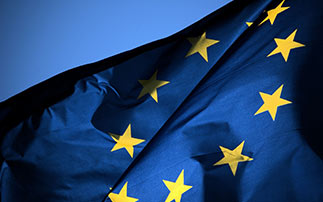
25 August 2021
+33(0)1 42 54 60 64 | contact@welcomeurope.com
Instrument to finance EU's development cooperation activities
EU Member States
Afghanistan
Other countries listed in the Article 9 of the following document: https://ec.europa.eu/neighbourhood-enlargement/sites/near/files/pdf/financial_assistance/ipa/2014/236-2014_cir.pdf
Objectives
* To promote female entrepreneurship in agricultural value chains, by supporting Afghan women in developing and executing their business ideas, and women-led micro and small enterprises in expanding their existing business, through facilitated access to bundled services (inter alia, access to finance, business training, mentorship and support networks, assets transfer, and etcetera)
Priorities
* To strengthen and broaden the capacity of Afghan women to develop and execute their business ideas and to expand their existing micro and small enterprises;
* To strengthen women’s economic agency, i.e. their capacity and confidence to act on available opportunities and to influence decision-making;
* To foster respect for women’s role as economic agents and to combat stereotypes, prejudices and harmful practices; and to promote awareness of the capabilities and contributions of women to the economic development of their communities
Amongst financed actions
* Support the development of micro and small enterprises in agricultural value chains through the provision of bundled services (inter alia, but not only, access to finance, technical assistance, business training, mentorship and support networks, business development services and market linkages, assets transfer) throughout the life of the project;
* Support business growth of micro and small enterprises in agricultural value chains through the provision of bundled services (inter alia, but not only, access to finance, technical assistance, business training, mentorship and support networks, business development services and market linkages, assets transfer) throughout the life of the project;
* Provision of life skills training including critical thinking, decision making, problem solving, time management, negotiation, personal resources management, conflict management, interdependence skills, etc;
* Collection of appropriate information, including statistical and research data, to inform the implementation of the Action and to enable the Government and the civil society to formulate and implement policies and programmes to support women’s economic empowerment (mapping and sharing information on existing business development services for enterprises should be a priority);
* Promoting and facilitating dialogue processes, mediation and behavioural change activities at family and community level. The activities should tackle discriminatory social norms, gender stereotypes and the marginalisation of women at family and community level and promoting the idea of an inclusive society, engaging women and men, girls and boys with activities tailored to the different needs of each group. These activities should necessarily target also men and boys;
* Awareness-raising and communication activities on women’s economic empowerment tailored for different target groups (for example, inter alia, Local Authorities, CDCs, religious leaders, women’s and youth groups, students and media). Cooperation with the media to strengthen their capacity to cover this topic and to amplify the impact of the action is possible but should be pursued in a sensible manner in compliance with the Do No Harm principle. These activities should necessarily target also men and boys;
* Inclusive and strategic partnership, networking and cooperation among female entrepreneurs, entrepreneurs’ organisations, governmental institutions and other relevant stakeholders (e.g., fostering structured dialogue mechanisms);
* Sub-granting to micro and small enterprises
Additional information
* This call for proposals is a restricted call for proposals. In the first instance, only concept notes will be evaluated
* Initial duration of the action: 48 months
* Eligibility:
– Be a legal person;
– Be non-profit-making;
– Be a specific type of organisation such as: a member state agency, non-governmental organisation, civil society organisation, international research organisation, university or university related organisation or an international organisation as defined by Article 156 of the Regulation (EU, Euratom) 2018/1046;
– Be established in a Member State of the EU or an eligible nation as per Article 9 (DCI) of the Regulation (EU) 236/2014 (CIR). This obligation does not apply to international organisations;
– Be operational in Afghanistan at the moment of the launch of the call for proposals
* Actions must take place in at least five provinces in Afghanistan
* Grant amount: between 4.5 and 5 million euros
* Co-financing rate: between 70% and 80% of the total eligible costs
* If full funding is essential for the action to be carried out, the maximum possible rate of co-financing may be increased up to 100 %

25 August 2021
